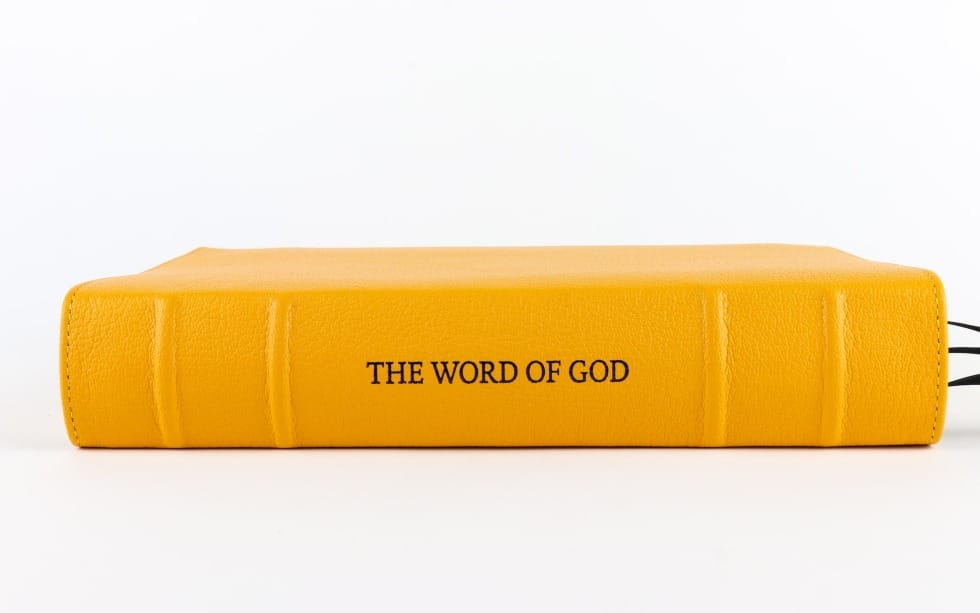Why is the Bible Different? (2 Timothy 3:16-17)
What makes the Bible different from other ancient texts? Here are three key factors.

2 Timothy 3:16-17
Today's Scripture Passage
A Few Thoughts to Consider
Why is the Bible different from other great works?
To start, let’s look at two scriptures.
2 Timothy 3:16-17 says, “16 All Scripture is inspired by God and is profitable for teaching, for rebuking, for correcting, for training in righteousness, 17 so that the man of God may be complete, equipped for every good work.” And 2 Peter 1:20-21 says, “20 Above all, you know this: No prophecy of Scripture comes from the prophet’s own interpretation, 21 because no prophecy ever came by the will of man; instead, men spoke from God as they were carried along by the Holy Spirit.”
There are three primary reasons we can trust the authority of Scripture. First is the time span. The New Testament books were written within sixty years (most within thirty) of the death of Christ (AD 30). This is significant because this means the authors wrote from eyewitness testimony or spoke to others who had an eyewitness encounter with Jesus.
Also, early church fathers such as Clement and Ignatius quoted many New Testament books by around AD 100. Clearly, writings about Jesus were already in circulation.
Christian apologist Norman Geisler writes, “Most scholars (conservative and critical) believe the New Testament was completed by 100 AD."
Second, the sheer number of manuscripts available to us today is overwhelming. Since no original manuscripts of the Bible exist in our current age, we must rely on the copies of original manuscripts we have in our possession. Again, this is common for every piece of ancient literature. If we add up the number of New Testament manuscripts available today from differing languages such as Syriac, Arabic, Ethiopic, Latin, Coptic, Greek, and so forth, we get a stunning amount of roughly 24,000 manuscripts available.
Manuscript expert Dan Wallace gives us tremendous imagery. He points out that the total thickness from manuscript copies of the average ancient author would only pile four feet in height. Compare that to the New Testament manuscripts, which would be roughly a mile.
Third, the quality of our manuscripts is incredible. When it comes to ancient writings, most great works have a wide discrepancy between the various manuscripts. For instance, piecing together various copies of Homer’s Iliad, we can determine that it is roughly 95% pure. This is very good. But when it comes to the New Testament, we find an even greater reliability. Like any ancient manuscript, there are minor discrepancies between copies. A word was left off, or a sentence was structured slightly differently. These instances are relatively minor and have little significant impact on the text's overall meaning.
Time span, number, and quality offer some concrete reasons for trusting the words of Scripture we hold in our hands today.
A Meditation to PRAY
Praise | Lord, thank you for your Word. Thank you for revealing Jesus.
Release | Because your Word is a “Lamp for my feet and a light on my path” (Psa. 119:105), I release to you my desire to figure out life on my own.
Ask | Use your Word to conform every area of my life to Christ.
Yield | Help me to filter my desires through the Word rather than your Word through my desires.
A Challenge to Act Like Christ
It was Voltaire, a French Enlightenment writer and deist, who famously stated that within one hundred years of his time, Christianity would cease to exist as humanity knew it. Yet, just fifty years after his passing, the Geneva Bible Society moved into his house and began printing numerous copies of Scripture. God’s Word cannot be stopped.
The Bible is the #1 bestseller of all time by far. While its message will always face attacks, you and I can have confidence that we can discover the one true God through the God-given pages of Scripture.
And as we covered yesterday, throughout the entire Bible, we cannot help but notice an amazing uniformity to its message. Through roughly forty writers of Scripture, the Bible stays focused on the overarching plan of God to redeem mankind to himself.
*Unless you specify otherwise, comments and questions you ask may be featured in upcoming podcast episodes.





